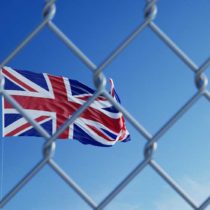Brexit bureaucracy to fuel the cost-of-living crisis
At the beginning of 2021, we estimated the extra cost to the meat industry of Brexit bureaucracy would be between £90-£120 million a year. We predicted it would render British exporters less competitive and cause a permanent 20% loss of trade with the EU.
Recently released Government figures for just one of these extra costs (export certification) suggest that our prediction was accurate.
But the rising costs of doing business that are having such a negative impact on British companies is about to hit European exporters who currently supply over a quarter of the food on British shelves.
Until now, the Government has taken the decision to wave through supplies into the UK without requiring the same paperwork and physical checks. But from July, the same extra time and cost burdens to get through customs will be imposed on our EU suppliers. This means that EU imports will suddenly become more expensive, and European exporters will become less inclined to keep supplying to the UK.
When you consider that over a quarter of all food on British shelves is sourced from the EU, these new costs imposed by Brexit will only add to the UK’s cost of living woes. The new post-Brexit trading regime has added millions in extra cost but provided zero benefit to companies; and it’s consumers that will be picking up the bill.
The extra costs explained
Recently released figures from the Animal and Plant Health Agency which is responsible for just one part of the extra bureaucracy show that the bill for Export Health Certificates alone that are now required to ship all products of animal origin comes to just shy of £60 million a year. That reflects a 1,255% increase year-on-year.
But that’s just the start. The Export Health Certificates (EHCs) will just get goods onto a lorry. In addition, there are now numerous new costs and overheads that previously didn’t exist. These include extra administrative staff, additional paperwork, record keeping and systems to support the issuing of EHCs, port charges, customs agents’ fees… the list goes on. Costs vary between companies, but all have reported a significant increase. Those same companies are also reporting a persistent loss of trade with the EU around the predicted 20%.
Nick Allen, Chief Executive of the British Meat Processors Association explained: “After a year of dealing with the new post-Brexit customs and certification system, our members are reporting a huge rise in cost, which either has to be absorbed or passed on to their EU customers, rendering British exporters less competitive.”
Nick Allen again: “Millions of pounds are being spent on extra paperwork and checks, but for zero extra benefit to British companies. The Government could solve this problem by entering into a Veterinary Agreement with the EU which would instantly negate the need for most of the current bureaucracy and physical border checks and give British exporters a fighting chance to regain the trade they’ve lost – trade that simply can’t be replaced by selling goods to more distant markets”.





